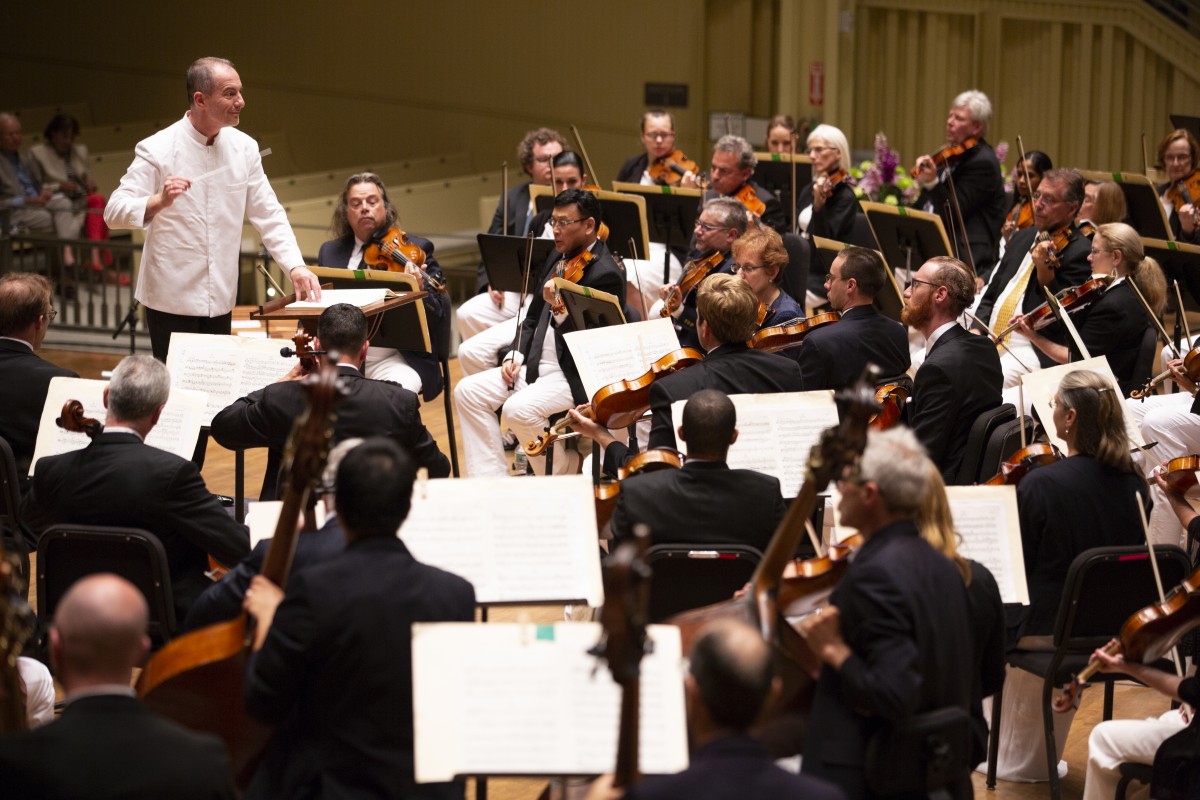
So far, the Chautauqua Symphony Orchestra’s season has been a tour of Europe, with scenes from Shostakovich in western Russia, Beethoven in Vienna and, most recently, Elgar in England. There’s been a notable absence: Claude Debussy and Maurice Ravel’s French Impressionism.
At 8:15 p.m. Thursday, Aug. 2, in the Amphitheater, Music Director Rossen Milanov and the CSO will pay the Frenchmen their due with an all-French program, featuring Bizet’s L’arlésienne Suite No. 1, Debussy’s Prélude à l’après midi d’un faune (Afternoon of a Faun) and Ravel’s Shéhérazade and Daphnis et Chloé Suite No. 2.
French music from this period, according to Milanov, constitutes a unique contribution to the Western classical music canon. These composers, he said — especially Debussy — shattered dominant compositional practices and forged a new musical language.
“Normally, composers would fill in shapes or bottles that we call musical forms with whatever musical liquid that they had created,” Milanov said. “But here, it seems like Debussy was not really concerned with sticking to any particular form; he just allowed the music to breathe and to shape itself in a very natural way that was never really heard up to that point.”
For Milanov, this concert will be one of the highlights of the season.
“I have always had a very strong affinity to musical color and virtuosic orchestration.Certainly in the case of Ravel and Debussy, we have two of the perfect examples of orchestration. They really showcase the orchestra in a completely different light.”
-Rossen Milanov, Music director, Chautauqua Symphony Orchestra
This concert will be a distinct contrast to the sounds of the Beethoven Festival that concluded Week Five, according to Milanov.
German music, he said, could be represented visually by primary colors that would not mix with one another too much — distinct ideas and sections, without much blurring of the lines. But in French music, Milanov said, the combinations of musical instruments and timbres tend to be more colorful, shimmering and fluid.
The Grammy Award-winning mezzo-soprano Sasha Cooke will join the CSO for a performance of Ravel’s song cycle Shéhérazade. This will not be her first time with French songs in the Amphitheater; in her 2015 Chautauqua debut, when she sang Chausson’s Poème de l’amour et de la mer, op. 19, she was praised by critic Donald Rosenberg for her “lustrous, vividly focused voice” and “nuanced shading and facial expressions.”
Milanov said that this piece is fairly popular in Europe, but is rarely performed in the United States. He programmed the piece for its “delicious orchestration” and “beautiful text,” originally a poem by Tristan Klingsor (printed in full in the Symphony Notes).
“The way the song line is interwoven with the accompaniment is something which you normally don’t see done with that level of sophistication in a song cycle for voice and orchestra,” Milanov said. “It’s incredibly sensuous and very suggestive, but at the same time both beautiful and inspiring.”




